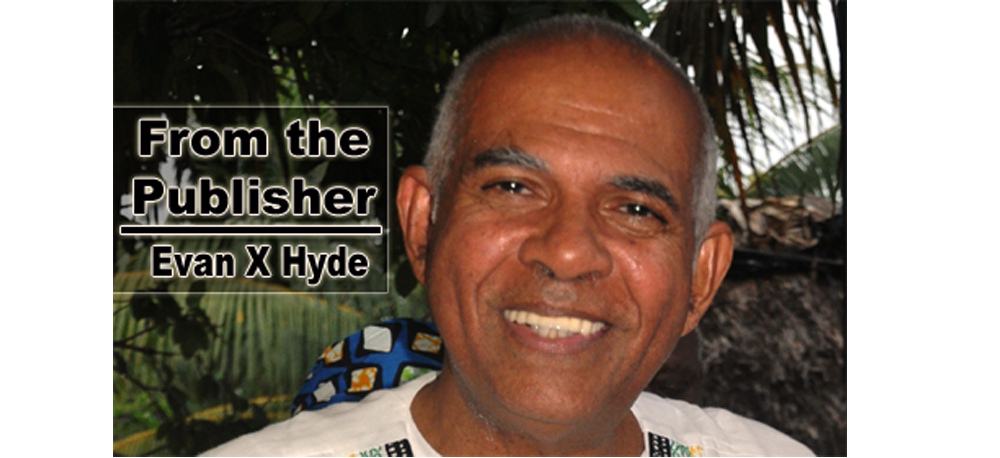I sense a certain unease in the Belizean people with respect to the future judgment of the International Court of Justice (ICJ). Some of the unease would derive from the fact that such ICJ judgment has been defined as “final” by the various authorities, here, there and everywhere.
Guatemala is a fearsome opponent, not only because of its military might, but because its two most significant allies, the United States and Israel, are themselves terrifyingly powerful.
Last night, Tuesday, at the national convention of the ruling Democratic Party in Chicago, one of the speakers was a grandson of former U.S. president Jimmy Carter, who was president from 1976 to 1980, and, now confined to a hospice, will become 100 years old in October, according to his grandson. Best wishes to Mr. Carter from this column.
The way Belize became a politically independent nation was through the benevolence of Jimmy Carter when he sent word to Belize in late 1980 that the United States would no longer oppose Belize’s political independence.
It has often been said that the two major American political parties, the Democrats and the Republicans, are very much similar, especially in the area of foreign policy.
The foreign policy of the United States with respect to the Belize issue/Guatemalan claim was clearly set out in the Seventeen Proposals of the American attorney, Bethuel Webster, in 1968. The Seventeen Proposals allowed for Belize, then a self-governing British colony claimed by Guatemala, to become independent as long as the Guats essentially oversaw Belize’s defence and foreign policy, so to speak.
The Leader of the Opposition National Independence Party (NIP), Hon. Philip Goldson, who had observed the discussions between Great Britain and Guatemala which produced the Seventeen Proposals, was so alarmed by the proposals that, although all Belizean representatives had been sworn to secrecy, he came home to Belize and bravely exposed what he remembered of the proposals to the Belizean people in 1966. This caused violence in Belize City streets and, I suggest, made Mr. Goldson persona non grata for the U.S. State Department. When the Seventeen Proposals were officially published in 1968, that also precipitated violence in Belize City.
Guatemala has threatened to invade Belize on more than one occasion, but Belize was under the protection of the British, and Britain is a world power. At the same time, the United States, as allies of the Guatemalans, did not support the independence of Belize when votes were taken in the United Nations.
In the mid-1970s, the British sent Harrier jump jets to Belize to counter a Guatemalan threat. The American president (previously vice president) at that time, Gerald Ford, who had become president when the Watergate scandal forced Richard Nixon to resign in 1973, had nothing to say.
Ford was a Republican, and the Republicans, under Nixon, had been in power from 1968, while a bloody civil war was raging in Guatemala. This was the era of the so-called Cold War between Russia and America, and there were American advisers in Guatemala assisting the Guatemalan power structure to defend itself from guerrillas in the Peten who, the Americans felt, were receiving aid from Fidel Castro’s communist Cuba through Belize.
The Guatemalan oligarchy claimed that the villages where Guatemala’s majority Maya population lived, were supportive of the guerrillas, and during that civil war, which lasted from 1960 to 1996, there were horrible, Gaza-like atrocities, inflicted on Maya villages by the Guatemalan military.
Jimmy Carter was/is a deeply religious man, a good man. Guatemalan military atrocities against the Maya population alienated him to the point where he refused to ship more military hardware to the Guats in 1977. Countries like Israel, Taiwan, and Belgium quickly replaced the Americans as Guatemalan arms suppliers.
When Carter decided to support the independence of Belize, butchers like Rios Montt in the military leadership of Guatemala were out of control in a humanitarian sense. The primary purpose of the U.S. presidency/government is to protect American corporations, citizens, and other interests all over the world. I would say that Carter’s decision to support Belize’s independence was controversial at the State Department and with the Joint Chiefs of Staff, because propaganda from the Belize business community had branded Assad Shoman and Said Musa, who had been People’s United Party (PUP) senators between 1974 and 1979, and had become PUP Cabinet ministers in late 1979, as communists.
The main reason Jimmy Carter lost the U.S. presidency to the Republican Ronald Reagan in December of 1980, was because U.S. diplomats in Iran had been kidnapped by the revolutionary government of the late Ayatollah Khomeini, and Carter’s attempt to free his diplomats with a helicopter strike from the desert, had failed. Reagan was thus able in his campaign propaganda to portray Carter as weak.
There are some serious elements in the U.S. Defence Department and the military of the United States. The American blueprint for Belize, as defined in the Seventeen Proposals, remains the American blueprint. That is why Mr. Goldson (and others) broke away from the Opposition UDP in 1991 when the top two UDP leaders were supporting the very complex Maritime Areas Act (MAA). Mr. Goldson was suspicious.
When the Opposition UDP was formed in September of 1973, in the absence of Mr. Goldson, who was studying law in London, there were senior Republican advisers in the UDP entourage. This was disclosed to me by a knowledgeable member of the early UDP.
There are implications for Belize in the present United States presidential campaign. The Republicans have promised so-called “mass deportations” if elected. How would this impact Belize? It does not appear to me that younger generations of Belizeans are too deeply immersed in Guatemala, ICJ, and Republican issues. All I am saying is that I feel that there is a vague uncertainty here because of our relative helplessness in the larger scheme of things.

